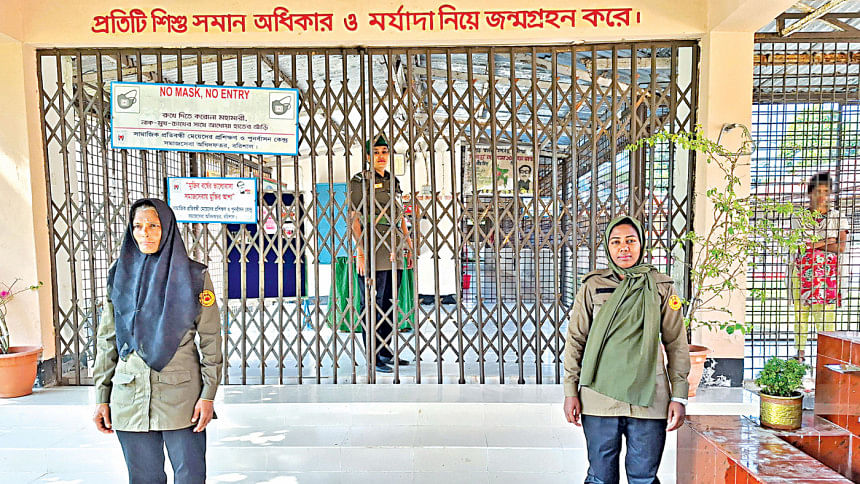Safe but not free

For the last five years 19-year-old Sumona (pseudonym) has been living at the Training and Rehabilitation Centre for Socially Disadvantaged Women in Barishal. Although she is at the Centre because she was a victim of abuse, because of an outdated rule, she does not have the freedom to leave at her own will. She must either get married or employed, or be handed over to her family to be permitted to leave.
All she remembers is that she comes from Malonti village in Jashore.
Seven years ago, Sumona was working as a house help in Dhaka. But she ran away as the employer used to beat her over trivial reasons. She took a launch from Sadarghat and then reached Barishal where she found another job as a domestic worker. But again, she was physically abused.
Eventually, a woman took her to the victim support centre of Kotwali Police Station. Since then, the Centre, operated by the Department of Social Services, has been her residence.
"I want to go home. But I hardly recall any details about my guardians, and I am not married. Consequently, I am not permitted to leave," says Sumona.
Twenty-year-old Maloti (pseudonym) who arrived at the Centre five years ago has a similar story. Coming from Muladi in Barishal, she also faced physical abuse while working as a domestic help and eventually ended up at the Centre. Despite police efforts to locate her guardians, they could not be found.

Expressing her desire for freedom, Maloti says, "Who wants to stay in captivity? There is no problem here, but I want to see the outside world and go home, but I have no option."
Rabeya Akter, the trainer at the rehabilitation centre, says that these young women cannot be released without proper rehabilitation or the presence of a legal guardian.
"The girls are trained in various trades like sewing, block design, and beauty parlour services. We are working towards arranging jobs for these girls as part of their rehabilitation, and once that is achieved, they can be released," she tells The Daily Star.
According to officials, these centres are run by the rules of the Department of Social Services, which states that the victims can be released once they are rehabilitated, are married, or under the authority of legal guardians.
Once a girl is rehabilitated, a five-member committee led by the social services officer of the Centre, and district administration, issue a recommendation for their release, according to officials.
Adv Fayez Ul Haque Fayez, the public prosecutor of the Barishal court, told The Daily Star, "All activities of women and children are regulated by the Prevention of Oppression Against Women and Children Act 2003, and Children Act 2013."
The law states that women and child victims have to be kept in safe custody but they cannot be kept after the age of 18 years, he said, adding that if anyone commits a crime then they should be transferred to jail after that age.
"In this way, there is a deviation in the existing law, as the girls were kept in custody even after 18 years, and they are victims of crimes," he added.
Officials said out of 30 girls in the Centre, half of them are already over 18 years and so are adults.
Shah Sajeda, convener of the Sushasoner Jonno Nagorik (Sujan) in Barishal, suggests that there should be a maximum of a two-year timeframe for the training and rehabilitation so that the girls can reintegrate into society after the end of the training.
"In the absence of a proper law, the girls remain in the Centre for a long time, but there usually remains a timeframe for safe custody," he says.
Sazzad Parvej, manager of the rehabilitation centre, says, "It takes some time to arrange rehabilitation of the girls after the end of the training."
"If the stakeholders of the society, come forward then it will be easier for us," he added.

 For all latest news, follow The Daily Star's Google News channel.
For all latest news, follow The Daily Star's Google News channel. 



Comments